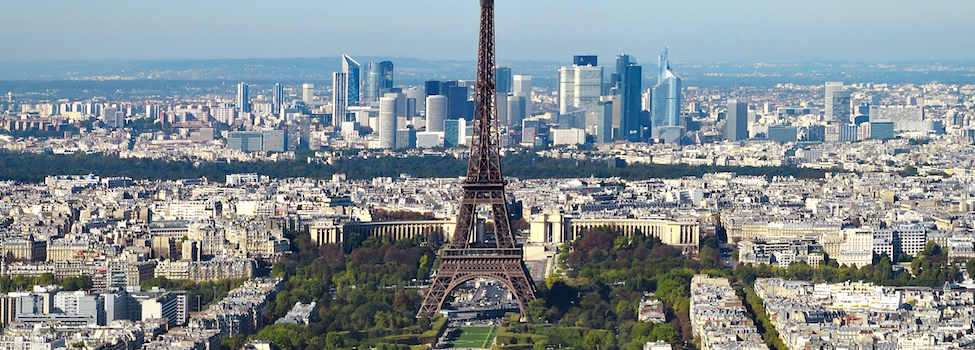Masters in Management Programs in France: A History of Success

French business schools created the degree, and their strong links with employers are still valuable today
The Master’s in Management (MiM) degree was created in the elite French Grandes Écoles — super selective professional schools whose graduates have for decades dominated the upper echelons of French business and society.
So it is not surprising that French business schools also dominated the FT’s 2018 global ranking of MiM courses, with institutions such as HEC Paris, Emlyon and Neoma Business Schools making up about a quarter of the ranking of the 100 best programs for those with scant work experience.
The schools attribute their success to their long history of running MiM degrees and their links to French businesses. This allows them to remain responsive to industry changes to ensure their graduates are ready for the job market.
[See the Top Master in Management Programs in France]
It also enables them to keep their fees low. Many top French schools, including HEC Paris and ESCP Europe, were created by local chambers of commerce to produce the next generation of leaders. The chambers still provide financial support to many schools. This includes subsiding tuition fees, meaning Masters in Management courses at many French institutions are competitively priced.
This advantage is coupled with the lower costs of living in France. Although the capital, Paris is pricier than many other French cities, the cost of living there is still lower than other business hubs such as New York, London, Tokyo and Dublin, according to the most recent Mercer Cost of Living Report.
France: the birthplace of the Master in Management degree
“The Master in Management program in France is quite exceptional because of its history. It was first offered by French business schools in the 19th century,” says Patrice Houdayer, associate dean at SKEMA Business School, which was established in Lille in 1892 and now has campuses around the world.
This means SKEMA has had more time than business schools in the US and Asia to develop its syllabus and pedagogy, adapting to changes in student and employer demand. Houdayer says: “The program has evolved and French schools have been among the first to offer academic mobility abroad, double multidisciplinary degrees, and customization of the course.”
SKEMA’s Master in Management program is refreshed regularly: students can now do a specialization in management of artificial intelligence, analytics or marketing; double degrees in engineering, political science, design, law and more subjects. This gives them greater breath of knowledge in niche subjects that may help them secure employment.
Strong industry links are also evident at ESSEC Business School near Paris. Students on the MiM mix academic theory with practical experiences, for example doing internships, apprenticeships or creating a startup. Around 25 percent of ESSEC students are apprentices — working part-time for a leading company while finishing the program, which is fully funded by the employer.
MiM in France: post-degree career prospects
This provides a pathway to working full-time on graduation in France, the seventh largest economy in the world, with a strong reputation for fashion, luxury, gastronomy and biotechnology. Most international students do that, and many are hired by France’s leading firms — more than a third of ESSEC graduates overall work for corporations with more than 5,000 employees, according to Felix Papier, dean of pre-experience programs.
He adds that ESSEC’s heritage gives students an advantage in terms of the 47,000-strong alumni network, which informs program content and helps students find internships and jobs across diverse industries, from finance to arts management.
Yet students who do not speak French may have a harder time securing jobs in the country. But while many students do find work locally, they also find work overseas, either with foreign firms or French champions that are expanding. Mark Thomas, director of the MiM at Grenoble Ecole de Management in the heart of the Alps, says French businesses have an international outlook and many, such as AXA, Total and Christian Dior generate much of their revenue from outside France.
“Our graduates are fully operational and capable of working in a global context,” says Thomas, adding that many speak three or more languages.
An MiM in France can provide valuable global experience
Most French schools build global study into their programs, to make graduates more internationally mobile. This is well demonstrated at INSEAD, a business school that was established after the Second World War in Fontainebleau, France to promote reconciliation across Europe. In the 1980s the school began expanding globally, launching campuses in Singapore and Abu Dhabi.
INSEAD’s new Master in Management program, set to launch in September 2020, will see students spend six months in France before finishing the 10-month program in Singapore. There will also be optional study trips to Abu Dhabi, China and San Francisco, says program director Thibault Séguret.
Having such a spread of cultures makes for richer classroom discussions, and most employers want job candidates who can work in teams with a wide variety of people, according to an FT survey. “We feel that learning to adjust to other cultures and places, and being able to facilitate the adjustment of your peers to your culture, are essential skills,” says Séguret.
Yet many prospective students may be drawn to France’s cultural wealth and savoir-faire. “France has a great deal to offer students. With a rich cultural heritage, high quality lifestyle and some of the best gastronomy in the world, France offers students an exceptional life experience,” says Michelle Sisto, associate dean of graduate studies at EDHEC Business School.
Paris, for example, is a center for fashion, food, art and architecture. Students may also enjoy skiing in the French Alps, or walking along the shores of Bretagne. This makes the experience of studying a MiM in France both rich and rewarding.






